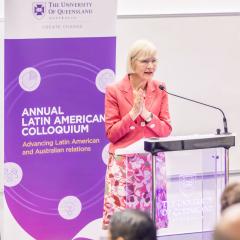The strategic objectives that guide the work of the Australian Centre for International Agricultural Research (ACIAR) include developing the professional capacity of researchers within partner countries.
Strengthening the capability of individuals, organisations, and systems to perform agricultural research for development supports the ACIAR vision of reducing poverty and improving livelihoods through more productive and sustainable agriculture.
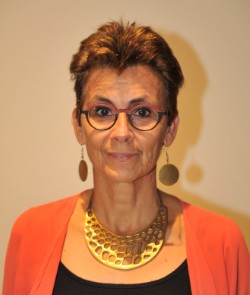
(Image: supplied)
UQ’s Associate Professor Elske van de Fliert, Director of the Centre for Communication and Social Change, convenes 3 ACIAR Learn courses, in Science Communication, Interdisciplinary, critical and participatory approaches to Research for Development, and Research for Development Design and Practice.
Dr van de Fliert has worked on ACIAR-funded projects for more than 20 years and shares the importance for Australian academics and institutions in supporting the development of capacity that improves research outcomes.
“In all my projects, we spend time on capacity building of national project partners, as well as enhancing the understanding of the Australian team about local conditions and practices," she said.
"ACIAR Learn is a platform for national researchers to not only learn from and share experiences with Australian academics, but also to learn from peers in similar jobs within different contexts."
The projects that ACIAR supports help researchers from partner countries better understand the concepts and methodologies commonly used in Australian institutions. This empowers researchers to negotiate project approaches and methods that are relevant for their contexts, providing a strong foundation for co-authoring relevant publications.
More than 40 courses have been delivered through the ACIAR Learn platform, with 12 more in progress or under development, and many researchers complete multiple courses to support their projects and careers. Incorporating researchers' feedback helps shape the program to ensure courses continue to support their developing interests and careers.
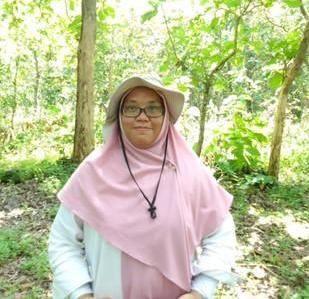
Dr Arom Figyantika, a junior lecturer and team leader, at the Faculty of Forestry, Universitas Gadjah Mada (UGM) Indonesia has completed 4 ACIAR Learn courses.
“They have deepened my understanding of research and academic writing, and helped me mentor undergraduate students in these skills," she said.
Dr Figyantika encourages researchers to register for ACIAR Learn.
“The courses are very useful for updating and upgrading the skills that are necessary and important in research, writing, and working with the community,” she said.

For Abdul Rahim Khan, Director, Development and Operations, Al-Rafique Enterprises, Pakistan, the ACIAR Learn courses on Gender Equity and Social Inclusion in Research, Research Project Management Essentials, and Monitoring, Evaluation and Learning in Research, have significantly enhanced his professional skills.
“Presently I am working with the ‘Women Empower Project’ here in Pakistan," he said.
"I use the knowledge gained in the ACIAR Learn courses to conduct training of food processing as a household business,” he said.
A researcher for 30 years, Abdul Rahim Khan said ACIAR Learn courses advance his techniques and knowledge.
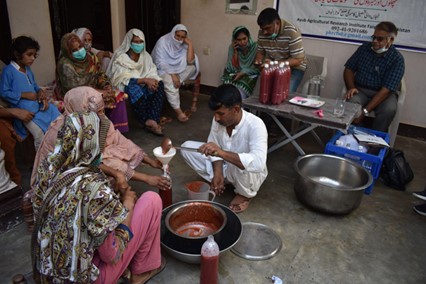
One of the things that sets ACIAR Learn apart from other capacity development programs is that the course convenors are subject matter experts with experience in the countries where participants work, helping to ensure contextual and culturally relevant content.
ACIAR Learn’s approach to capacity development allows researchers to study through bite-sized online lessons, accessed through their smartphone, tablet, laptop or computer – anywhere, anytime, at their own pace.
Peer-to-peer learning opportunities complement these lessons. They include live online sessions, discussion boards and buddy groups. Participants have valuable discussions and make meaningful connections with peers from around the world.
Alessia Anibaldi, Team Leader, ACIAR Learn, UQ believes a commitment to fostering peer learning and recognising the expertise of participants as well as course convenors is a priority.
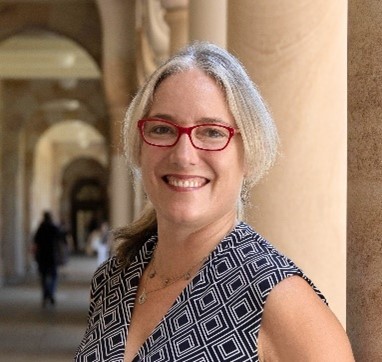
“ACIAR Learn is committed to continuous iteration for improvement – this means that feedback collected from participants is considered at the end of each course.”
Courses are modified each time they run, whether through the inclusion of new case studies, broader reflection activities or changes to live session activities.
“Through course participants’ feedback, they contribute to co-designing course improvements.”
To date, participants have given ACIAR Learn courses an average satisfaction rate of 99%, with 96% of participants reporting that content is relevant to their work duties.
“We are very proud of these results, which show that our course offerings are having a tangible impact on ACIAR researchers and their work in addressing complex challenges across the globe,” Alessia said.
#ACIARLearn is an #ACIAR initiative that is being designed, developed, and delivered in partnership with The University of Queensland (#UQID) #AgriculturalResearch #AgR4D #GlobalDevelopment #Development.
For more on eligibility requirements and how to register, visit the ACIAR Learn Prospectus.


